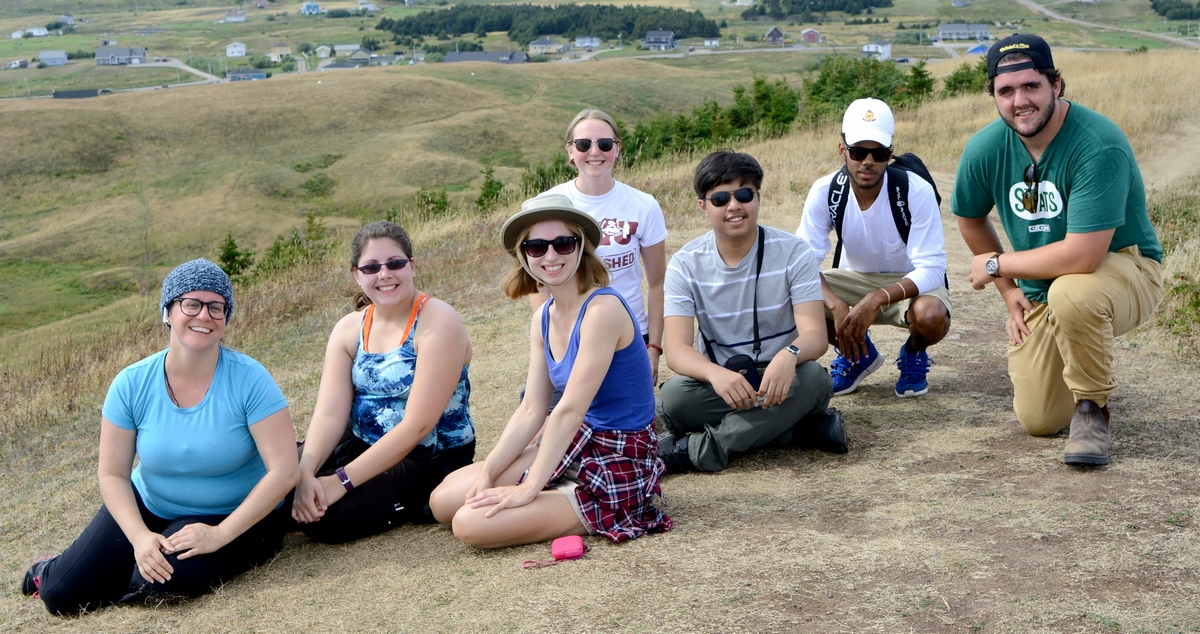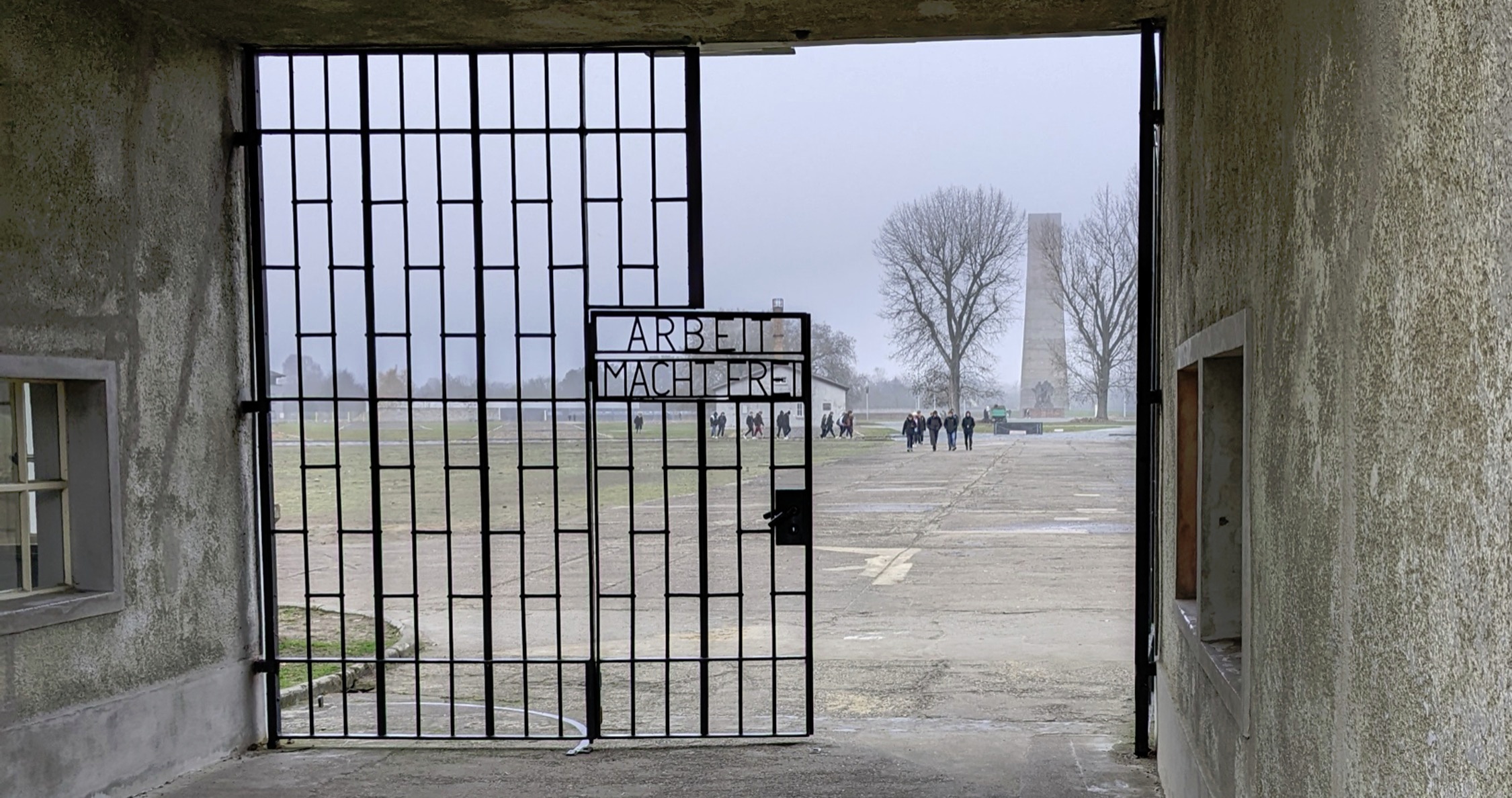Geography Field Schools
The current schedule of Geography field schools (subject to change) is:
GEOG 3100 TBD
GEOG 3454 TBD
GEOG 4100 TBD
GEOG 4110 South Korea - Winter 2026
GEOG 4800 [HIST 4800] Difficult Heritage ~ Europe - Fall 2027

Destination TBD
Trip destinations vary according to faculty interests and collaborative opportunities that arise. Twice previously, the destination for this field school was the Magdalen Islands (Iles de la Madeleine), Québec [above].
Term TBD
Instructor Faculty member(s) in Geography and Environmental Studies
Number of credit hours 6
Course description The physical and human geography of a selected Canadian region will be studied primarily in the field in this experiential learning course. An integrative regional geography perspective will be taken. Students will be required to attend orientation and preparation classes before the trip, and to complete assigned course work after the trip.
Prerequisite 27 credit hours, including GEOG 1100 or GEOG 1200, and permission of the instructor
Further details about upcoming offering To be posted when information becomes available.
Destination Sites around the Bay of Fundy
Term TBD
Instructor Dr. Danika van Proosdij dvanproo@smu.ca
Dr. van Proosdij is a coastal geomorphologist, Fellow of the Royal Canadian Geographical Society and Fellow of the Royal Society of Canada. As a coastal geomorphologist, she merges field studies and geomatics to understand how coastal ecosystems respond to natural and anthropogenic drivers of change, and how these responses can be leveraged to foster ecosystem resilience while assisting communities adapt to climate change. This includes coastal vulnerability assessments and the use of nature-based adaptation to manage flooding and erosion hazards in and outside of Canada. She is the co-founder and Director of TransCoastal Adaptations: Centre for Nature Based Solutions and has fostered a long-term partnership with CBWES Inc. and the Province of NS over the last 20 years, applying innovative and proven techniques to restore over 400 Ha of tidal wetland habitat in Nova Scotia. She has served as a scientific advisor for provincial, federal governments, international agencies and NGOs in assessing coastal erosion and flood risk.
Number of credit hours 6
Course description In this interdisciplinary field course students examine physical, biological and human environments, processes and issues in the Bay of Fundy region from both a historical and a contemporary view. Topics include physical and biological processes such as tides and biological productivity, ecosystems such as tidal flats and salt marshes, settlement patterns, and resource use. Emphasis is placed on current issues and solutions.
Prerequisite 27 credit hours, including GEOG 1100 or GEOG 1200, and permission of the instructor
Further details about upcoming offering To be posted when information becomes available.
Destination The Gambia, West Africa
Term TBD
Instructor Dr. Cathy Conrad cconrad@smu.ca
Dr. Conrad is a scholar of West African migration and has been working and studying in The Gambia for over a decade. Students will engage in a diversity of learning experiences, an opportunity that many former participants have noted as a highlight of their SMU experience.
Number of credit hours 6
Course description Students study the physical and human geography of selected international regions primarily in the field in this experiential learning course. Trip destinations may vary in different years according to faculty interests and collaborative opportunities that may arise. Student take an integrative regional geography perspective. Students are required to attend orientation and preparation classes before the trip, and to complete assigned course work after the trip.
Prerequisite 27 credit hours, including GEOG 1100 or GEOG 1200, and permission of the instructor
Further details about upcoming offering Please contact the instructor.
Funding is available! Consider applying for a Global Learning Award. For more information see Funding - Studio for Teaching and Learning.
Destination South Korea
Term Winter 2026
Instructor Dr. Min-Jung Kwak Min-Jung.Kwak@smu.ca
Dr. Kwak's research interests are located at the intersection of economic, urban and social geography, with a regional focus on Canada and the Asia-Pacific Region. Four substantive areas of her research are: Globalization and transnational migration; International education industry; Immigrant entrepreneurship; and Immigrant health care services. She has investigated the social implications and local impacts of global economic processes paying particular attention to the everyday lives of (im)migrants. This also includes an interest in public policy making around migration and settlement issues.
Number of credit hours 6
Course description This experiential learning course provides an opportunity to study the dynamic geography of South Korea (Republic of Korea). Through engaging in-class seminars and an enriching field trip to the country, students delve into diverse aspects of South Korea's physical and cultural landscape. The main themes of the course may change over the years with faculty interests and collaborative opportunities, ensuring relevance and dynamism. By adopting an integrative regional geography perspective, students gain insights into the past, present, and future of South Korea, fostering a comprehensive understanding of this vibrant nation.
Prerequisite 27 credit hours, including GEOG 1100 or GEOG 1200, and permission of the instructor
Further details about upcoming offering Please contact the instructor.

Main entrance, Sachsenhausen Memorial and Museum, Oranienburg, Germany
Destination Paris, France, and Berlin, Germany
Term Fall 2027
Instructor Dr. Jason Grek Martin Jason.GrekMartin@smu.ca and Dr. Kirrily Freeman (Department of History) Kirrily.Freeman@smu.ca
Dr. Grek Martin is a cultural and historical geographer and his research analyzes the rich and multi-faceted concept of place— particularly the dynamic and power-laden processes by which places are constructed, contested, and imbued with complex meanings by individuals and communities. His current research explores place-making primarily in the context of travel and tourism to sites of difficult heritage and contested memoryscapes, drawing on a robust interdisciplinary scholarship developing at the intersection of heritage tourism, media tourism, and geographies of memory. In addition, he has ongoing research interests in the historical and contemporary intersections between culture, nature and place, particularly in relation to the ‘cultures of nature’ associated with parks within and around Halifax.
Dr. Freeman’s research focuses on the cultural history of Western Europe in the Twentieth Century. Her first book, Bronzes to Bullets tells the story of French statues and monuments that were melted down and shipped to Nazi munitions factories during the Second World War. Her most recent book, The Town of Vichy and the Politics of Identity, deals with the post-war history of the French town of Vichy and how it has managed the stigma of collaboration.
Number of credit hours 6
Course description In this seminar class, students will explore Western European heritage sites associated with the Third Reich and the Second World War in the classroom and in a field study to Paris and Berlin. Course material and discussions will focus on how the experiences of victims, bystanders, resisters, collaborators and perpetrators have been commemorated and contested in material memoryscapes.
Prerequisite 60 credit hours, and permission of the instructors
Further details about upcoming offering Please contact the instructors.